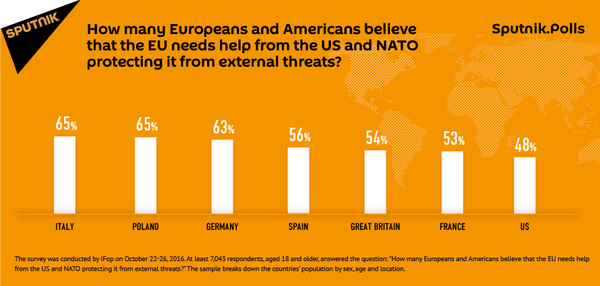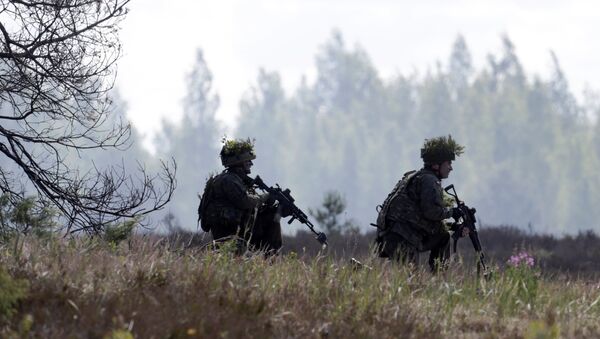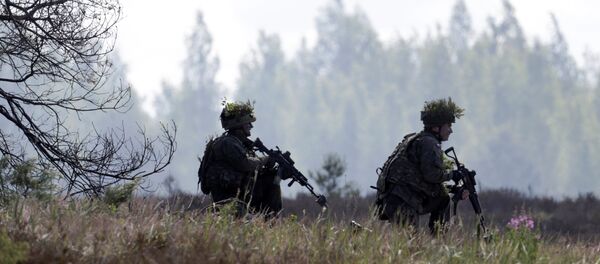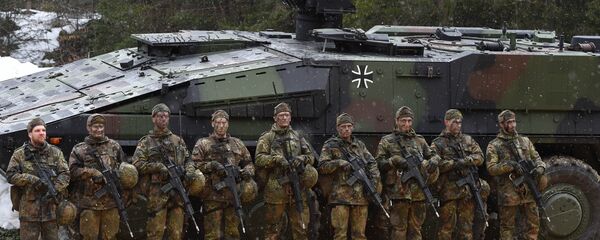NATO's fate will be reliant on "what relationship [Trump] will form with President Putin and whether this is going to change the balance of power or the balance of threat across Europe," the analyst said.
Trump has repeatedly indicated that his team will try to improve relations with Russia which were badly damaged while Barack Obama was in office. Both leaders have already spoken, with their second phone conversation lasting approximately an hour.
The White House described Trump's call with Vladimir Putin as "a significant start to improving the relationship between the United States and Russia that is in need of repair," adding that both presidents were hopeful that the two sides "can move quickly" to tackle terrorism and other important issues of mutual concern.
"I think at present [Trump has] got far more complex issues, many of them being of his own making, to deal with," the analyst said. If the US president "starts decreasing military support to NATO, then yes it is going to require a significant reappraisal within Europe, especially if there is perceived to be a rising threat. I think part of the answer will be depending on whether Trump carries through with these discussions."
Shields suggested that the European Union could invest more into defense, but said that bloc is unlikely to create its own army.
Shields also commented on an opinion poll conducted by conducted by IFop for Sputnik which found that more than half of respondents in six European countries, comprising France, Germany, Italy, Poland, Spain and the United Kingdom, said that Europe needs NATO and the United States to ensure their security. Only 48 percent of Americans shared these sentiments.
"I think what that represents is a degree of realpolitik. People are aware that there are threats, perhaps even growing threats to European security. They look at how successive Western governments have decreased defense spending. … Defense spending rarely gets discussed at general elections. Armies, air forces, navies have been hollowed out. Capabilities are reduced. People are rightly concerned just how secure they really are," the analyst explained.

The survey also showed that younger people are more confident in Europe's ability to defend itself.
The poll was conducted from October 22 to October 26, 2016, with 7,043 people participating.
Have you heard the news? Sign up to our Telegram channel and we'll keep you up to speed!



